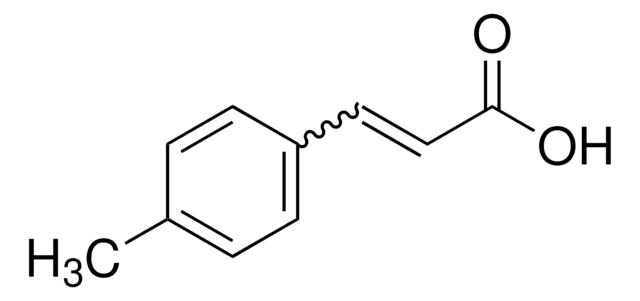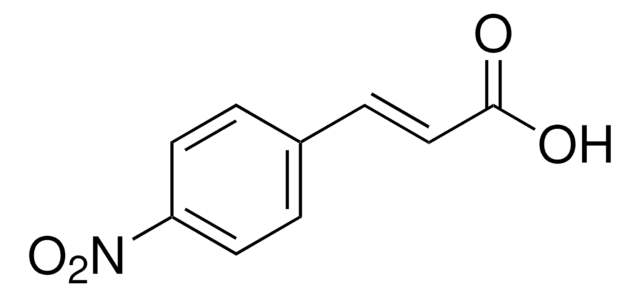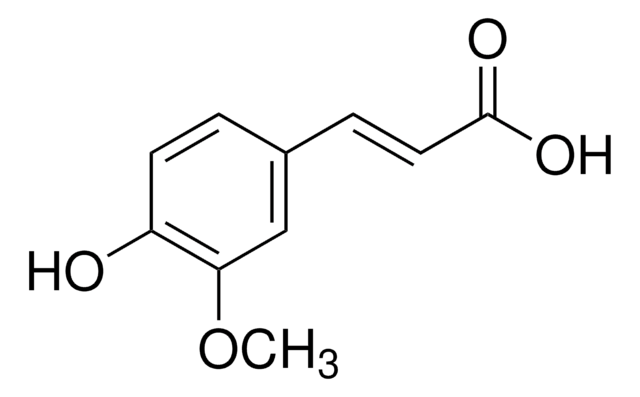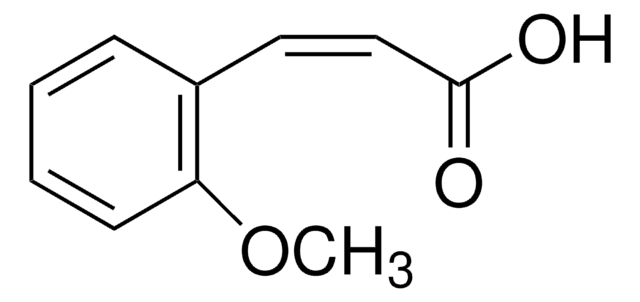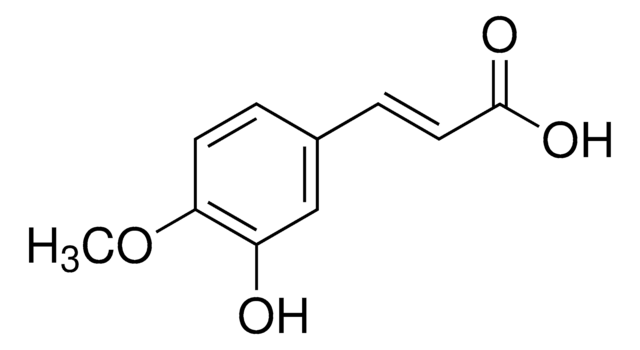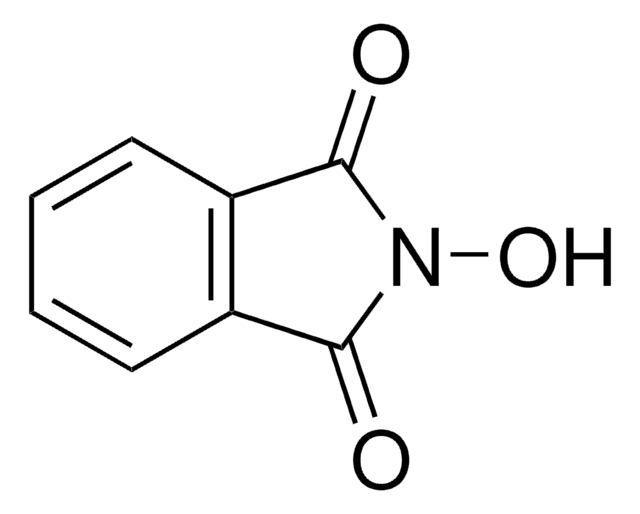M13807
4-Methoxycinnamic acid, predominantly trans
99%
Sign Into View Organizational & Contract Pricing
All Photos(1)
About This Item
Linear Formula:
CH3OC6H4CH=CHCO2H
CAS Number:
Molecular Weight:
178.18
EC Number:
MDL number:
UNSPSC Code:
12352103
PubChem Substance ID:
NACRES:
NA.23
Recommended Products
Quality Level
Assay
99%
form
liquid crystal
mp
170-173 °C (lit.)
transition temp
crystalline phase to nematic phase 173.5 °C
nematic phase to isotropic phase 190 °C
SMILES string
COc1ccc(\C=C\C(O)=O)cc1
InChI
1S/C10H10O3/c1-13-9-5-2-8(3-6-9)4-7-10(11)12/h2-7H,1H3,(H,11,12)/b7-4+
InChI key
AFDXODALSZRGIH-QPJJXVBHSA-N
Signal Word
Warning
Hazard Statements
Precautionary Statements
Hazard Classifications
Eye Irrit. 2 - Skin Irrit. 2 - STOT SE 3
Target Organs
Respiratory system
Storage Class Code
11 - Combustible Solids
WGK
WGK 3
Flash Point(F)
Not applicable
Flash Point(C)
Not applicable
Personal Protective Equipment
dust mask type N95 (US), Eyeshields, Gloves
Choose from one of the most recent versions:
Already Own This Product?
Find documentation for the products that you have recently purchased in the Document Library.
Sirichai Adisakwattana et al.
Life sciences, 78(4), 406-412 (2005-09-06)
We investigated the antihyperglycemic effect of p-methoxycinnamic acid (p-MCA), a cinnamic acid derivative, on plasma glucose and insulin concentrations, activities of hepatic glucose-regulating enzymes and hepatic glycogen content in normal and streptozotocin (STZ)-induced diabetic rats. p-MCA (10-100 mg/kg, PO) dose-dependently
N Ikemoto et al.
Carbohydrate research, 239, 11-33 (1993-02-01)
The microscale analytical method that is being developed in this group for the structure determination of oligosaccharides yields monosaccharide derivatives bearing two types of chromophores suitable for exciton-coupling, namely, 4-bromobenzoate (lambda max 245 nm) and 4-methoxycinnamate (lambda max 311 nm).
Victor S Sobolev et al.
Journal of agricultural and food chemistry, 54(10), 3505-3511 (2006-05-17)
The peanut plant (Arachis hypogaea) is known to produce stilbene phytoalexins as a defensive response to fungal invasion; however, the distribution of phytoalexins among different organs of the peanut plant at early stages of growth under axenic conditions has not
So Ra Kim et al.
British journal of pharmacology, 135(5), 1281-1291 (2002-03-06)
1. We previously reported that four new phenylpropanoid glycosides and six known cinnamate derivatives isolated from roots of Scrophularia buergeriana Miquel (Scrophulariaceae) protected cultured cortical neurons from neurotoxicity induced by glutamate. Here, we have investigated the structure-activity relationships in the
H M Chawla et al.
Journal of photochemistry and photobiology. B, Biology, 105(1), 25-33 (2011-08-02)
A series of novel calix[4]arene enones (5-7) and cinnamates (12-14) have been synthesized and evaluated for ensuring protection from ultraviolet radiation (UVR). Spectroscopic analyses has revealed that compound 6 absorbs ultraviolet radiations between 280 and 350 nm with an absorption
Our team of scientists has experience in all areas of research including Life Science, Material Science, Chemical Synthesis, Chromatography, Analytical and many others.
Contact Technical Service